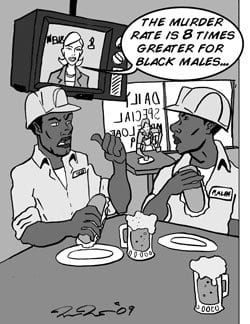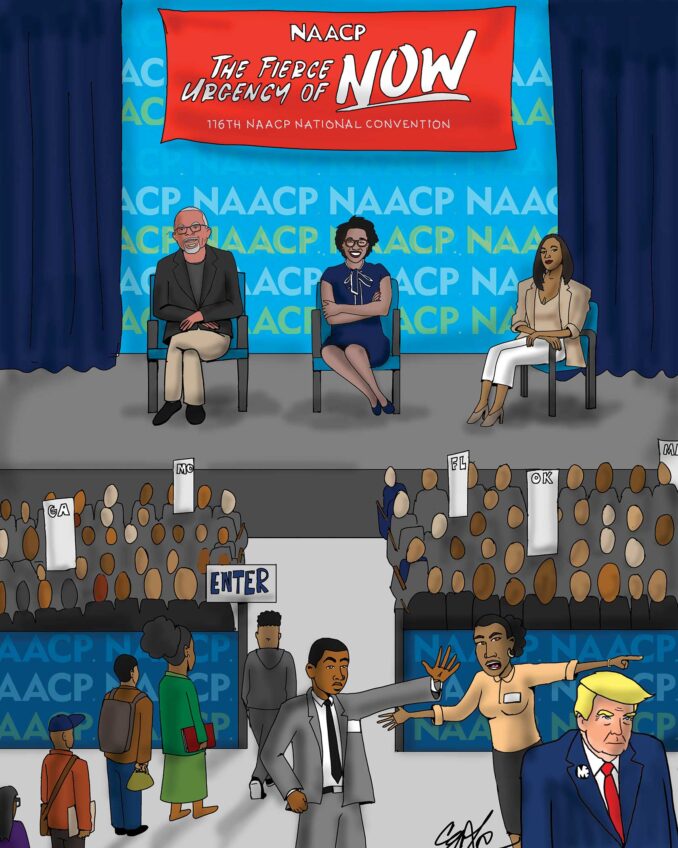
Self-annihilation
Violent crime decreased in 2008, according to the annual “Crime in the United States” report released by the Federal Bureau of Investigation (FBI). However, the news on homicides was not very encouraging for African Americans. Almost as many black people as whites became homicide victims in 2008. This was true even though only 12.4 percent of Americans are black, while 74.1 percent are white, according to Census Bureau data.
In 2008, 6,782 homicide victims were black and 6,838 were white, the FBI reported. When the number of murders is compared to each racial group’s share of the population, it becomes clear that death by homicide is almost six times more likely for blacks than for whites.
If this carnage against blacks was the act of white murderers, there would be a loud outcry from the black community against the racist violence. However, according to the FBI report, 5,943 of those arrested for murder were black and 5,334 were white. In Boston and in other major cities, a substantial number of murderers escape arrest, but data indicate that most people are killed by others of the same race.
In both races, the most common victims and killers were men between the ages of 17 and 30. In most cases, the victims and assailants were known to each other. According to the FBI data, 23.3 percent of victims were murdered by family members, 54.7 percent were slain by acquaintances and only 22 percent were killed by strangers.
The racial disparities in health care, education, employment opportunities and other areas have all attracted public attention. Yet there has been inadequate remedial action to curtail the horrific black murder rate. The persistence of this problem not only results in the terrible loss of life, but it also creates an atmosphere of fear and suspicion in black communities.
It will be more difficult to develop black communities as a strong political base if the primary objective of residents is to find a way to flee the violence. This is a black problem that black leaders must resolve, with the help of others.
The Banner’s next step
America has been suffering in the throes of the greatest economic downturn since the Great Depression of the 1930s. At the same time, the newspaper industry has struggled with revolutionary technological changes that have eroded advertising revenues. It is no wonder that a small weekly publication like the Bay State Banner would be greatly challenged by such circumstances.
With publication of the July 9, 2009, issue, the Banner announced that it would suspend publication. Reaction from the Boston community was resounding. Civic and political leaders stepped forward to help bring the Banner back, and Mayor Thomas M. Menino arranged for a bridge loan from a special fund administered by the Boston Redevelopment Authority.
Critical to the future success of the Banner is the management’s development of a plan for future operation with the guidance of Next Street Financial, a merchant bank located in Roxbury and New York. But no plan can be successful without the support and participation of Banner readers.
On Wednesday, Sept. 30, 2009, from 5:30 to 7:30 p.m., the Banner invites all those who may be interested to attend a meeting at Hibernian Hall, located at 184 Dudley Street in Roxbury, to hear a report on “the next steps” for the Banner. Those interested in coming should e-mail sandra@bannerpub.com by Monday, Sept. 28, so that we can have an accurate count for the caterer.
Your support will determine whether the Banner continues to serve as the voice of Boston’s African American community.






